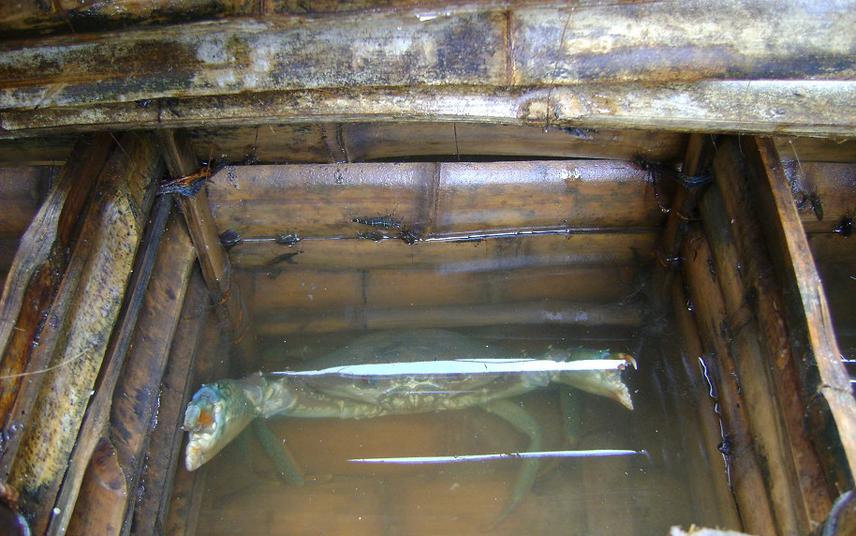David Mirera
Other projects
3 Apr 2007
Enhancing Mangrove Wetland Conservation through Silvofisheries Opportunities in Two Coastal Communities of Kenya
The project focuses on refining sustainable community silvofisheries technology that promotes alternative livelihoods and environmental protection in partnership with local communities as the final beneficiaries.

Mud crabs reared in floating bamboo cages.
Silvofishery is recognised as a powerful and practical engine of rural coastal economic growth and improved welfare for the poor inline with mangrove conservation and management. Despite its significance, silvofisheries has received less attention in Kenya. Hence this technology is being modified from South East Asia experience to obtained applicability in Kenya and the Western Indian Ocean Region. Research has been done on mud crab silvofisheries and the 1st Rufford grant helped in community dissemination of this information while no information exists on culture of high economic value fish like red snapper in the mangrove channel pools using nets which will be given emphasis in this project as opposed to pond excavations.
The approaches will involve refining simple technologies that are accessible, affordable, replicable, sustainable and with negligible negative impacts to the mangrove ecosystem. The objectives of the project are: To upscale community initiatives on mud crab culture using both drive-in and floating cages, monitor and assess the profitability on a local level; refine mangrove nursery establishment and planting activities, conservation initiatives and proper management among the local coastal people; To initiate casuarina tree planting initiatives to ease pressure for mangrove poles and up scale bamboo planting initiatives. All the above will be achieved through dissemination of silvofisheries technology to the coastal communities through training and set up of community trials in tree communities along the coast.